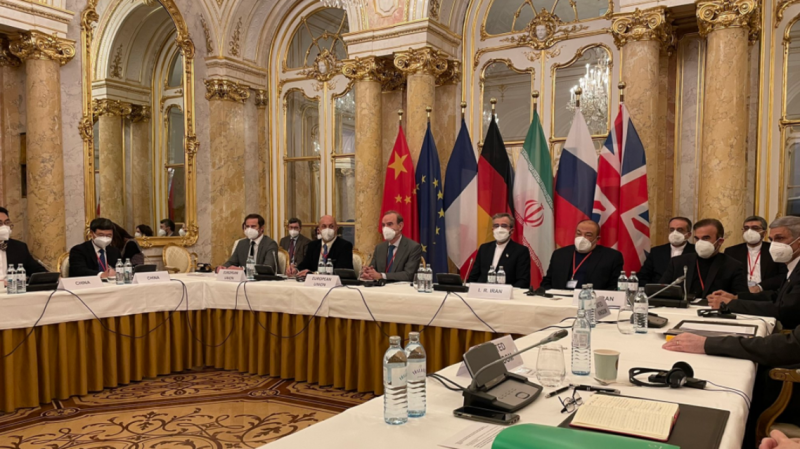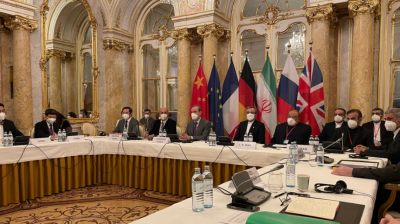Under the title "Vienna Talks Discuss Sanctions... Pessimism Behind the Scenes," the Arabic news website reported that although participants in the nuclear negotiations that began yesterday in Vienna are expressing optimism about reviving the 2015 agreement between Iran and the West, many diplomats are showing pessimism behind the scenes, aware that this seventh round may drag on without yielding constructive results. This was hinted at by the European Union's negotiation coordinator, European diplomat Enrique Mora, who noted that this round is "open," meaning it may continue for a long time as delegations need to return to their capitals for consultations before resuming discussions in the Austrian capital.
"It Will Not Be Easy"
Russian envoy Mikhail Ulyanov confirmed that the negotiation process "will not be easy." He explained that "the disagreements, especially between Iran and Western parties, remain significant on many points. However, discussions that took place on Monday and our separate talks with U.S. special envoy Robert Malley showed that everyone, without exception, is determined to achieve a positive outcome."
The agenda for discussions at the negotiating table today is restricted to sanctions. Mora was explicit yesterday, stating that today's discussions would focus on sanctions, while Iranian nuclear activities would be discussed tomorrow.
### Delegation Composition and Sanctions
Tehran is steadfast in its demand for the lifting of sanctions as a primary objective of returning to the negotiation table, a sentiment expressed repeatedly by various officials from the Foreign Minister to his assistant, reaching the head of the negotiating delegation in the Austrian capital. The composition of the Iranian delegation in Vienna also signifies the economic importance that President Ebrahim Raisi's hardline government places on lifting the U.S. sanctions imposed on the country and many of its sectors since former President Donald Trump's withdrawal from the agreement in 2018.
The delegation that participated in the discussions on Monday comprised chief negotiator Ali Bagheri, ministers of economic and legal affairs, the deputy governor of the central bank, the deputy minister of economy, the deputy minister of oil, in addition to the economic advisor to the Iranian vice president and the former central bank governor, according to various Iranian and international media reports.
Ulyanov himself commented on this composition, tweeting that "the composition of the new Iranian delegation in the Vienna talks is impressive! I believe it serves as evidence of serious intentions." Meanwhile, Washington reiterated that the goal of the talks is Iran's return to the nuclear agreement and adherence to its provisions. White House spokesperson Jen Psaki emphasized last night that the United States aims for Tehran to fully comply with the agreement.
A spokesperson for the U.S. State Department, in response to a question from an Al Arabiya/Al Hadath reporter in Washington yesterday, stated that "the negotiations will not be successful if Tehran insists on demanding the lifting of imposed sanctions without complying with the nuclear agreement."
It is noteworthy that six rounds of talks were held since April 2021 before halting in June ahead of the presidential elections in Iran, without reaching consensus on all terms. Despite the prevailing optimism at that time and the resolution of several obstacles, the issue of sanctions has powerfully returned to the table this time at the insistence of Raisi's government, which is holding it as a prerequisite for any further step.




